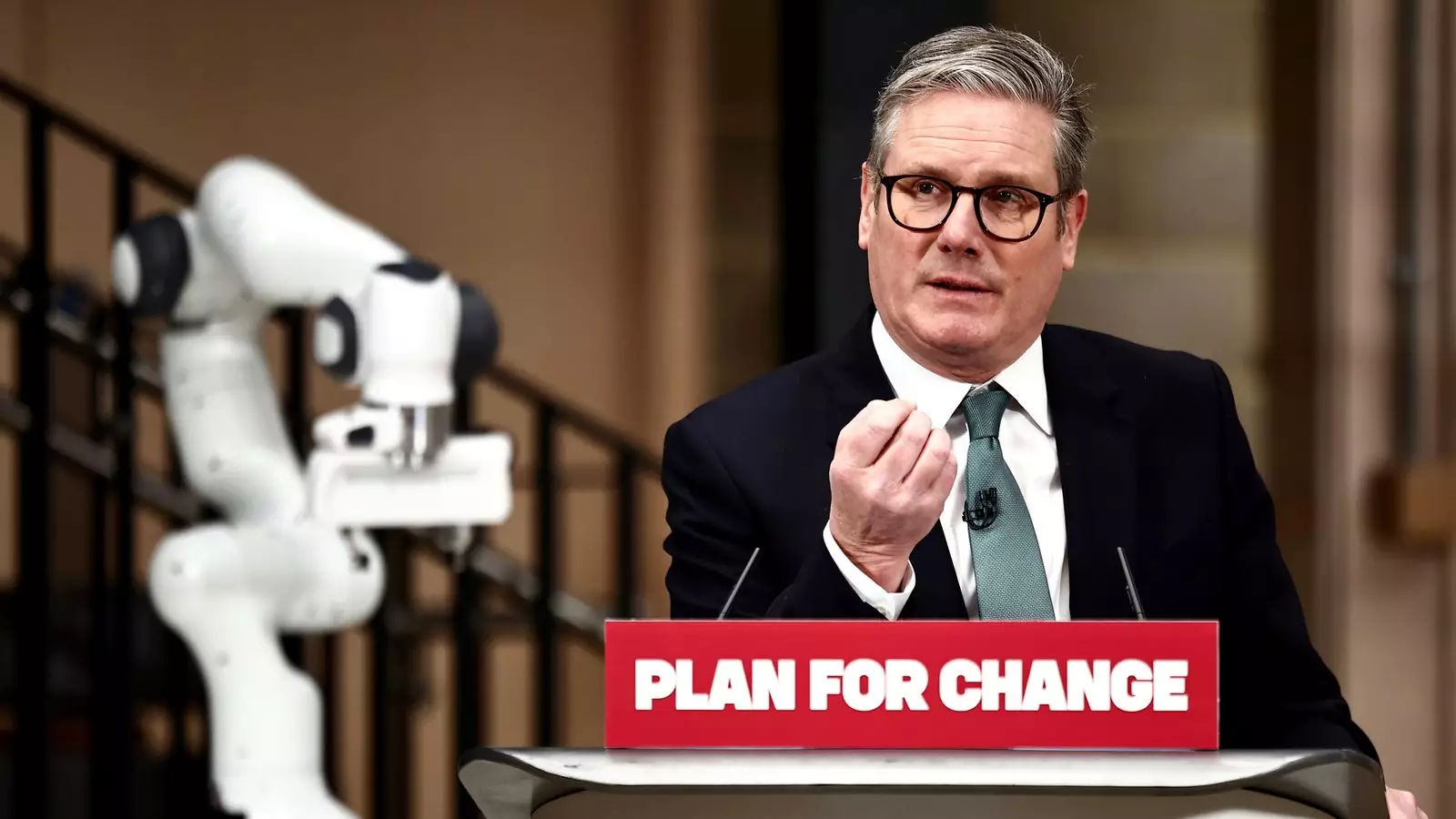In the context of economic turbulence, British Labour Leader Sir Keir Starmer has made stern commitments to rigorous government spending cuts while prioritizing economic growth. His remarks, made during an exchange with Sky News political editor Beth Rigby, signal a decisive shift in the government’s fiscal strategy amid escalating market pressures. What are the implications of Starmer’s statements for the UK’s economic landscape, and how do they reflect on the broader challenges facing the government?
Recent trends in government borrowing have raised alarms amongst analysts and the public alike. On Monday, both long-term and 10-year treasury yields saw significant increases, with the gilt yield for 30 years climbing to 5.47%—the highest level since 1998. This increase in borrowing costs places additional strain on government finances, raising questions about fiscal sustainability and the future of public investments. The 10-year borrowing rate, while slightly down from a recent peak, is still at levels reminiscent of the global financial crisis.
Such increases reflect broader uncertainties regarding investor confidence in the UK economy. The value of Sterling has also suffered, falling to $1.21, a drop that may signal waning trust among investors. As market volatility persists, financial institutions are expected to respond by adjusting mortgage rates, which could further exacerbate the financial burden for many households across the UK.
In light of these economic challenges, Starmer emphasized a “ruthless” approach to fiscal management, indicating that the Treasury must act decisively in curbing government expenditure. His government is slated to conduct a spending review later this year, which is projected to require departments to achieve efficiency savings of about 5%. This focus on cutting expenditures aligns with his broader goal of fostering economic resilience and stability.
Starmer articulated a clear vision for fiscal discipline, stating, “We’ve got clear fiscal rules, and we’re going to keep to those fiscal rules.” His insistence on maintaining these rules illustrates the gravity with which he views the current economic predicament, asserting that adhering to such guidelines is essential for long-term recovery.
The somber tone of his comments belies the reality that the government has “inherited a real mess” from its Conservative predecessors, however, this inheritance should not absolve the current leadership from accountability, as Starmer is adamant about the need for effective governance through stern measures.
Starmer’s remarks have ignited political debates and are likely to impact the Labour Party’s standing heading into the next election cycle in 2029. While he commended Chancellor Rachel Reeves for her role in navigating this difficult landscape, he notably refrained from confirming her position beyond the current term, opening the door for speculation and criticism from political opponents.
The Conservative party was quick to pounce on Starmer’s hesitation to fully endorse Reeves, characterizing it as a sign of discord and uncertainty within the Labour leadership. Kemi Badenoch, a prominent Conservative MP, accused Starmer and Reeves of exacerbating the economic crisis, stating that their policies have allegedly driven the economy into turmoil and eroded business confidence. Such accusations underscore the political fallout from economic challenges, which often become focal points of contention as parties gear up for electoral contests.
As the UK navigates this complex economic landscape, the efficacy of Starmer’s proposed measures remains to be seen. The commitment to fiscal rigor and growth-oriented policies will be tested against the backdrop of market realities and public sentiment. It will be crucial for the government to balance the need for difficult fiscal decisions with the necessity of sustaining public welfare and confidence. The road ahead will demand not only strategic thinking but also robust communication from leadership to ensure clarity and trust from both the business sector and the public. Starmer’s resolve to implement cuts while prioritizing growth may ultimately define his leadership and the Labour Party’s future trajectory in British politics.


Leave a Reply